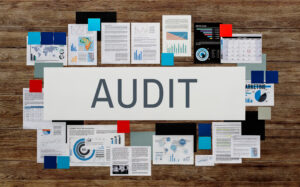
Winning U.S. government contracts is no longer just about price. Agencies now demand evidence of quality management and compliance. That’s why more suppliers are turning to ISO 9001 certification—a recognized standard that proves they have the systems to deliver reliably.
At QMII, we’ve seen first-hand how U.S. companies gain an edge by leveraging ISO 9001. For many of our clients, certification has been the deciding factor in securing bids, particularly with defense and federal projects.
Government Procurement Landscape:
The Federal Acquisition Regulation (FAR), a comprehensive set of guidelines that standardize how government agencies acquire goods and services, governs federal contracts in the United States. The FAR specifies strict requirements for choosing a vendor, including risk, operational controls, cost effectiveness, and historical performance.
Having a documented and certified quality management system provides extra points for meeting quality system requirements or evaluation factors found in many solicitations, especially those from the Department of Defense (DoD), the General Services Administration (GSA), and NASA.
Not all federal contracts are legally required to be ISO 9001 certified. Requests for Proposals (RFPs) usually list it as a preferred or advantageous qualification, though, particularly in industries like manufacturing, defense, logistics, engineering services, and IT support. Additionally, ISO 9001 certification
How ISO 9001 Demonstrates Reliability and Reduces Risk for Buyers
Government buyers value suppliers they can trust. ISO 9001 gives them confidence that:
- Processes are controlled and documented.
- Risks are identified and managed.
- Products or services will meet specifications consistently.
Think about it: if you were awarding a multi-million-dollar defense contract, would you risk it on a company without proven systems? For contracting officers, ISO 9001 certification is reassurance that they’re making a safe choice.
The Link Between ISO 9001 and Department of Defense (DoD) Contracts
In industries like aerospace and defense, quality isn’t optional—it’s critical. The DoD often prioritizes ISO-certified suppliers because they align with existing quality assurance frameworks.
For example, one QMII client in the aerospace supply chain found that without ISO 9001, they were routinely bypassed. After achieving certification, they won their first DoD subcontract within months.
Reducing Costs and Improving Competitiveness Along the Way
Getting ISO 9001 certified involves several phases. First is the gap analysis, where your current system is compared against ISO 9001 Beyond contracts, ISO 9001 benefits U.S. companies by improving efficiency. By standardizing processes, reducing waste, and addressing risks proactively, businesses lower costs while increasing customer satisfaction.
In fact, ISO reports that companies implementing ISO 9001 often see a 20–25% reduction in nonconformities. That efficiency makes bids more competitive while boosting profit margins.
Why ISO 9001 Is More Than a Certification: It’s a Growth Tool
Too many U.S. companies view ISO 9001 as just another certificate to hang on the wall. The reality? It’s a framework for continual improvement. Properly used, ISO 9001 helps organizations adapt to market shifts, scale operations, and manage risks effectively.
This is why at QMII, we emphasize not just passing audits but building a quality-driven culture that supports long-term growth.
How QMII Helps U.S. Companies Win With ISO 9001
At QMII, we’ve worked with manufacturers, service providers, and contractors nationwide. Our support includes:
- Gap analysis against ISO 9001 and government contract requirements.
- Training teams to embed quality thinking in daily operations.
- Consulting to integrate ISO 9001 with DoD and federal frameworks.
We don’t just help you get certified—we help you use certification as a lever to win business.
Conclusion: Why Government Buyers Trust ISO 9001 Certified Suppliers
In government contracting, credibility is currency. ISO 9001 government contracts U.S. suppliers trust prove reliability, reduce risks, and strengthen bids.
With QMII’s guidance, U.S. companies don’t just gain certification—they gain a competitive edge in winning the contracts that matter most.
Download our free Action Planning Checklist and take the first step toward securing more government contracts with confidence.



